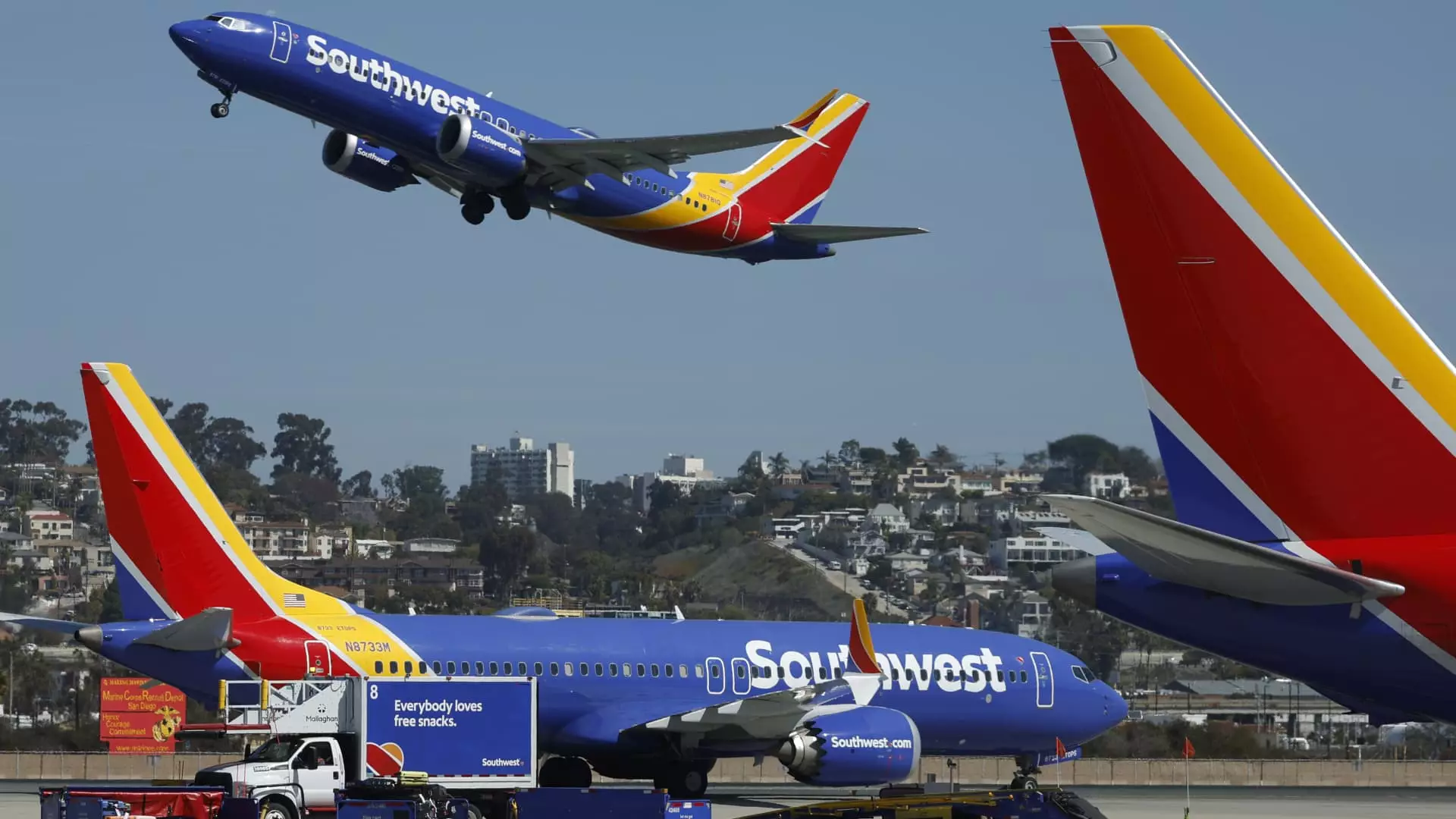In a fast-paced world, the expectations of air travelers have evolved dramatically. No longer content with basic transportation, consumers demand enhanced experiences. Southwest Airlines, under the leadership of CEO Bob Jordan, recognizes this paradigm shift. As the airline considers offering premium seating, airport lounges, and even the potential of long-haul international flights, it signals a commitment to adapting to market trends that cater to high-spending customers. This transformation is not merely cosmetic; it represents a recalibration of Southwest’s core business strategies amid increased competition and fluctuating market conditions.
Responding to Competitive Pressures
For decades, Southwest Airlines was synonymous with low-cost travel and an open seating policy that emphasized simplicity and efficiency. However, as competitors like Delta, United, and American Airlines ramp up their offerings by enhancing customer experiences—larger seats, luxury lounges, and international destinations—the pressure mounts for Southwest not only to keep pace but to innovate. Bob Jordan’s assertion, “We won’t take any of that off the table,” reflects a willingness to evolve while maintaining the inherent culture that sets Southwest apart. The challenge lies in effectively incorporating these changes without losing the very identity that attracted its loyal customer base.
Stress in the Current Economic Landscape
Economic realities play a significant role in shaping airline strategies. With U.S. airfare declining and economic uncertainty looming, Southwest, like its peers, faces mounting pressure to deliver profits. Jordan’s commentary on current fare pricing underlines this critical landscape, illustrating that the airline is in a precarious position. The introduction of no-frills economy fares to attract budget-conscious travelers indicates an awareness of the market dynamics at play. Nevertheless, this strategy may also risk alienating customers who prefer a value-added experience. The balancing act is delicate, and one misstep could have far-reaching consequences.
The Importance of Customer Loyalty
As Southwest contemplates enhancements, customer loyalty becomes paramount. The fear of losing clients to competitors is palpable. Jordan’s acknowledgment of the increasing interest from Nashville airline customers for luxury experiences highlights the necessity for Southwest to retain its consumer base against rival offerings. The risk of customers opting for co-branded credit cards from competitor airlines reinforces how crucial the airline’s next moves will be. Southwest must double down on existing customers while enticing new ones, striking the right balance between cost-effective operations and customer satisfaction.
Innovation Through Strategic Partnerships
Southwest’s decision to forge partnerships with international carriers like Icelandair and China Airlines reflects a strategic foresight in expanding its reach without significant immediate investment. Although the prospect of introducing longer-haul aircraft remains tentative, these partnerships mark a significant step toward broader global engagement. While the Boeing 737 has served Southwest faithfully for decades, diversifying the fleet could be the key to unlocking new markets. Yet, Jordan’s discretion in discussing this evolution emphasizes the sensitivity of such transitions and the need for careful planning.
The Future of Southwest Airlines
In considering the corporate shifts necessary for future success, the emphasis on innovation, customer experience, and strategic resource allocation take center stage. Next-generation aircraft capable of international flights may not be an immediate need; however, Jordan’s openness to explore these options signifies a forward-thinking approach. The challenge lies in creating a future that honors the company’s historic roots while simultaneously venturing into uncharted territory. It is an exciting yet precarious time for Southwest Airlines as it navigates a changing landscape and strives to reshape what it means to be a budget-friendly airline in the 21st century.
In the coming years, how Southwest Airlines responds to these transformative pressures will determine not only its market position but also its legacy within the aviation industry. The potential for expanded services and customer-oriented enhancements promises a revitalized brand, yet the path forward requires courage, vision, and an unwavering commitment to core values.


Leave a Reply